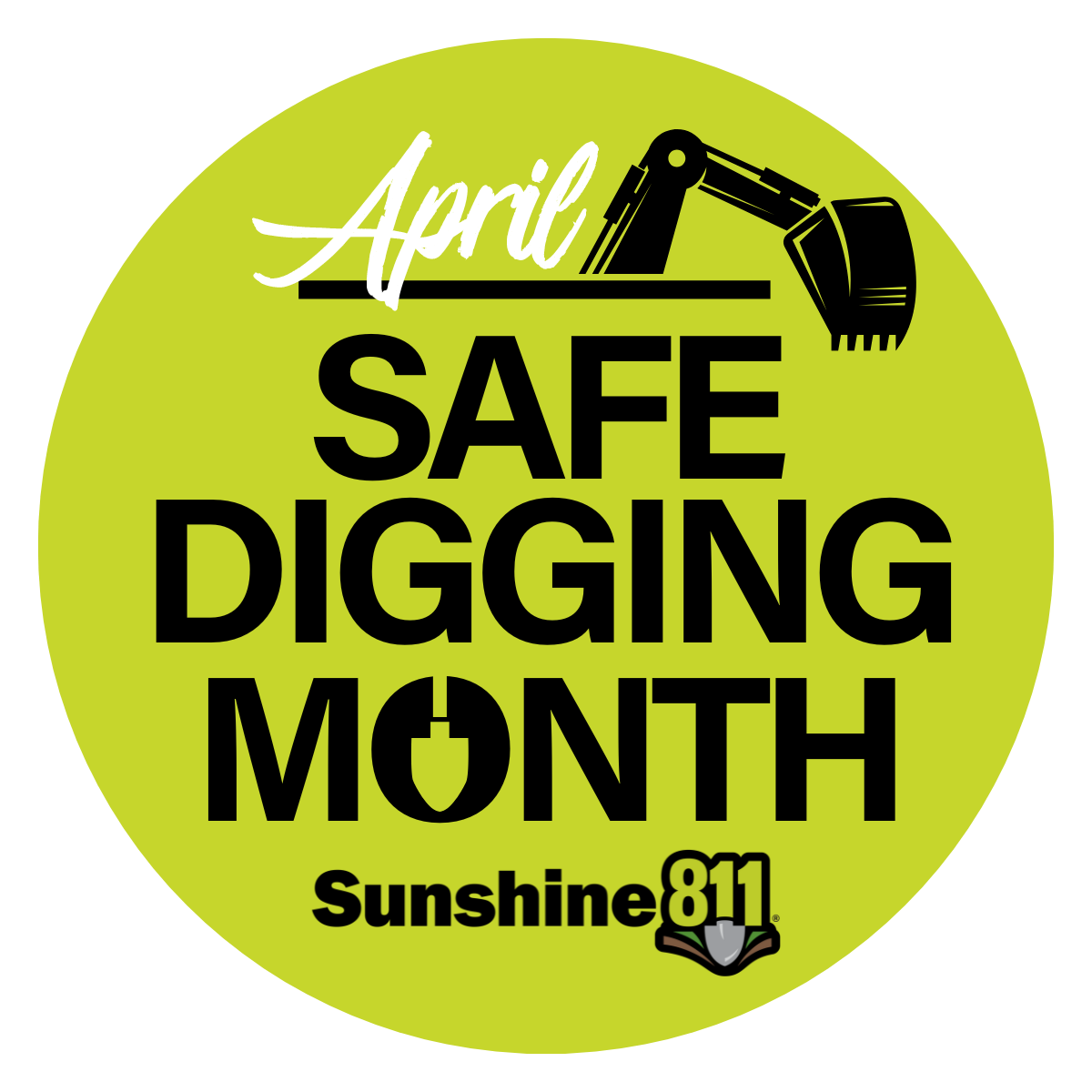April is Safe Digging Month – Dig Safe & Smart, Florida
Sunshine 811 shares tips for spring landscaping & outdoor projects, launches new site DigSafeFlorida.com
With warmer temperatures and April kicking off the best time of year to plant, spring means more people are heading outdoors to upgrade their landscaping, start a garden, install a fence and work on their home’s curb appeal. Given that it’s the most active season for outdoor home projects, Sunshine 811 encourages homeowners and professional contractors to dig safely, especially as landscaping and fencing cause the most damage to underground utility lines – resulting in costly repairs, service interruptions and even injuries.
“The majority of underground utility damages across the country occur from not contacting 811,” said Mark Sweet, Sunshine 811’s executive director. “In Florida, it’s the law to contact 811 before you dig. When you call 811, we send your information to our member utility companies, who then mark or clear their lines, ensuring public safety and helping you dig safely. Our priority will always be protecting communities across our state.”
811 can be accessed by entering those numbers directly on your phone or by digsafeflorida.com and clicking “Create a Ticket.” Sunshine 811 is also Florida’s go-to resource for education on safe digging. Our Learning Center offers in-depth information, resources and videos on a variety of topics, including safe planting tips, damage prevention and more.
Sunshine 811 encourages homeowners and contractors to follow these six fundamental steps for safe digging:
Plan: Think about the scope of your project and if you’ll need to hire a contractor. If digging in a small area of the dig site, outline that area with white paint or flags.
Notify 811: You’ll receive a ticket number and list of utilities that will be notified of your project. Remember that utility companies do not mark private lines.
Wait: After you submit a ticket, utility operators have two full business days to clear or mark the approximate location of underground utility lines on your property before you can begin digging.
Confirm responses: Follow the progress of each member utility by viewing the utility response codes they use to explain your dig site.
Respect marks: After ensuring that all member utility companies have responded, compare the colors of the marks and flags on your property to the list of member utility companies on your ticket.
Dig with care: Now that the buried utility lines on your property have been marked or cleared, it’s time to start digging! According to Florida law, there is a tolerance zone that runs 24 inches from a facility’s outside edges. Any digging in this area requires increased precautions to protect the underground utility lines. Also, keep an eye out for roots and stumps that could be entangled with utility lines. If you damage a utility line, contact the utility company immediately and do not attempt to fix it.
For more information about being safe and smart while digging, visit digsafeflorida.com.
About Sunshine 811
Celebrating more than 30 years of work to make Florida the safest place to dig, Sunshine 811 is the state’s go-to resource for education and training on safe digging practices. It’s also the organization the law requires you to call before starting any digging project. Sunshine 811 maintains a toll-free number and a 24/7 online system to notify its member utility companies of pending excavation projects, so buried utility lines can be located and marked to protect the underground infrastructure. The organization also works with enforcement entities throughout the state to ensure compliance with Florida laws.
It’s estimated that a utility line is damaged every six minutes in the U.S. Sunshine 811’s efforts are all about ensuring public safety and preventing underground utility damage. With Florida’s continued ranking as one of the top states in the country for construction activity and related jobs, safe digging in Florida and Sunshine 811’s role has never been more important.


